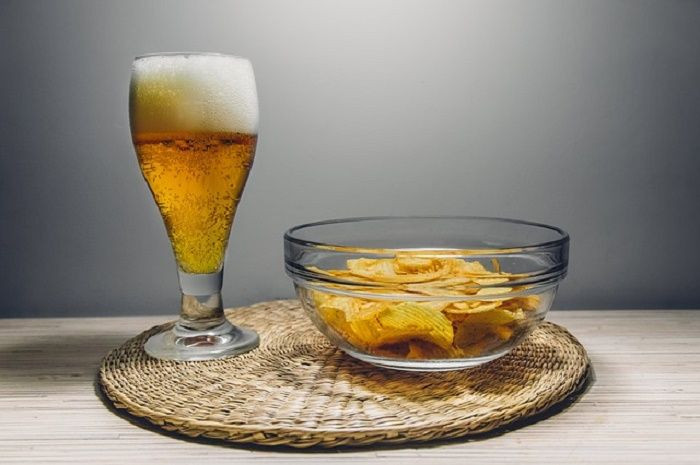Alcohol Impairs Self-Control, Makes It Harder To Resist Snacks And Greasy Foods

If your New Year's resolution is to lose weight, you might want to put down the cocktail. New research published in the journal Health Psychology suggests alcohol lowers inhibition and reduces a person's willpower when it comes to raiding their fridge for those leftover chicken wings.
Previous studies have linked alcohol misuse and excess weight gain, but the present research finds alcohol can stimulate appetite and increase energy intake. Through experimental taste tests, researchers were able to see how alcohol "impairs inhibitory control, which leads people to eat more," Time reported. "Although alcohol is highly calorific and may directly contribute to weight gain, it is also likely to have indirect effects on weight."
For the study, researchers randomly assigned 60 undergraduate women to drink a mixed beverage of vodka and diet lemonade, or a nonalcoholic beverage that had been manipulated to smell and taste alcoholic. The participants were then asked to complete a food-craving questionnaire and a challenging task designed to measure inhibitory control. In the task, the words blue, red, yellow, and green were written in a different color and the women had to say out loud what color the words appeared in. Finally, the women were told they could eat as many or as little chocolate chip cookies as they wanted for 15 minutes.
Those who had the vodka drink performed worse on the color test than those in the placebo group, not to mention they women drinking vodka also had more cookies. Researchers concluded the amount of cookies the women consumed correlated with how well they did on the color task, in that those who performed worse on the assignment ate more cookies. As Shape first put it, these results confirm the long-held idea of the impairment of self-control and "alcohol-induced unhealthy eating."
However, the study's findings were not reflected in women who were classified as "restrained eaters" — those limiting their calorie consumption to lose or maintain their weight. Lead study author Paul Christiansen said this may be because highly restrained eaters have a higher level of self-control over their eating behavior and put more effort into resisting food.
Based on the food craving questionnaires, researchers found "alcohol had no affect on the women's self-reported hunger or actual desire to eat the cookies," suggesting that alcohol's link to weight gain has more to do with lessened self control than heightened cravings, which is on par with previous studies on the subject matter, Shape reported.
The study concludes: "These findings highlight the role of alcohol consumption as a contributor to weight gain and suggest that further research into the role of restraint in alcohol-induced food consumption is needed."
Source: Christiansen P, Rose A, Randall-Smith L, Hardman C. Alcohol's Acute Effect on Food Intake Is Mediated by Inhibitory Control Impairments. Health Psychology. 2015.
Published by Medicaldaily.com



























